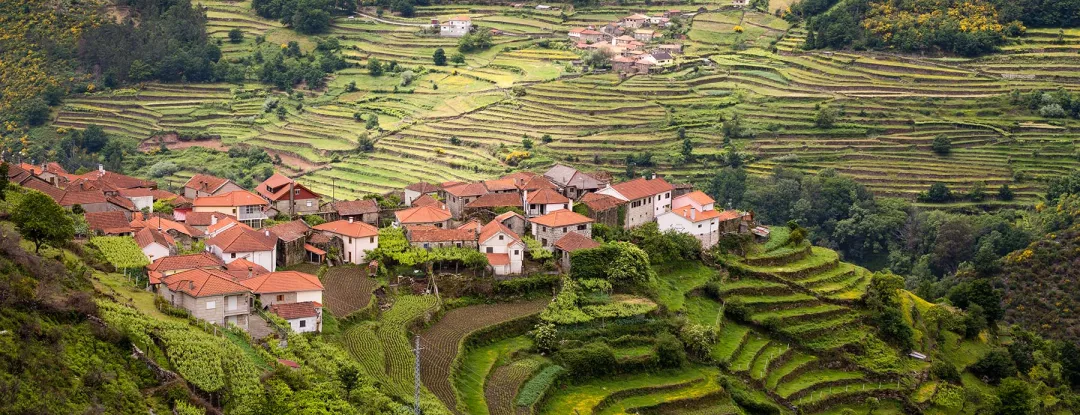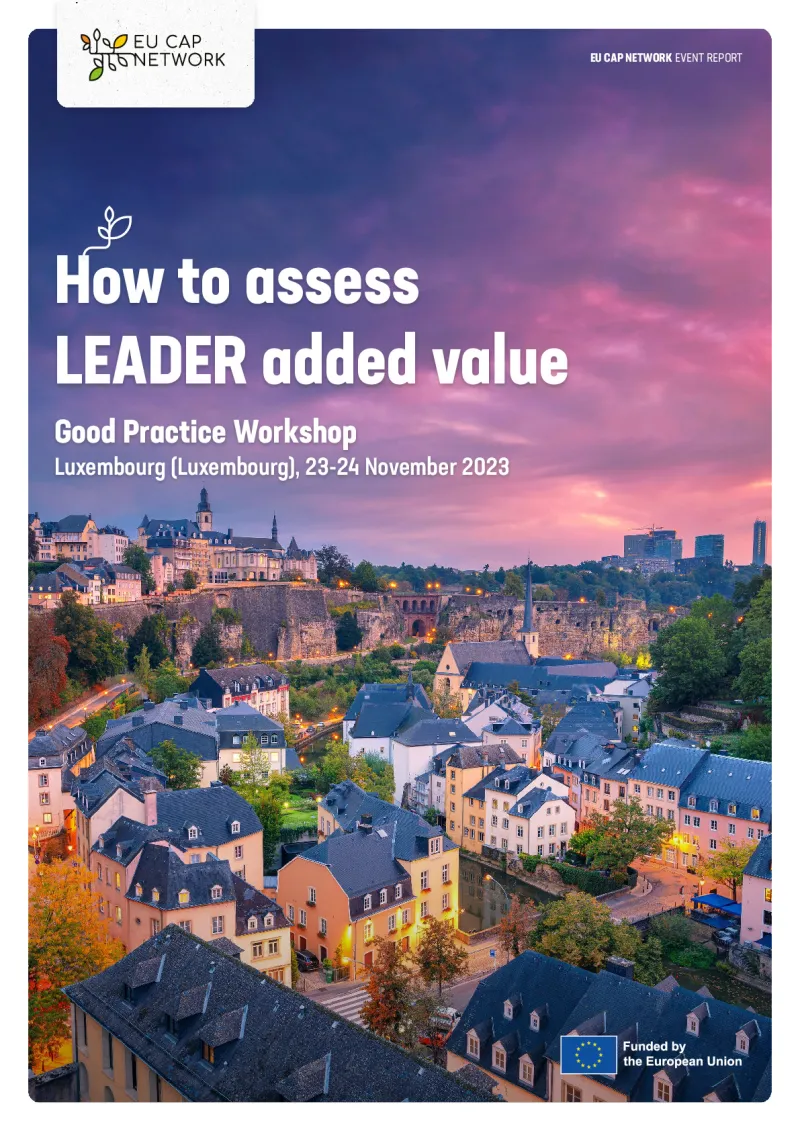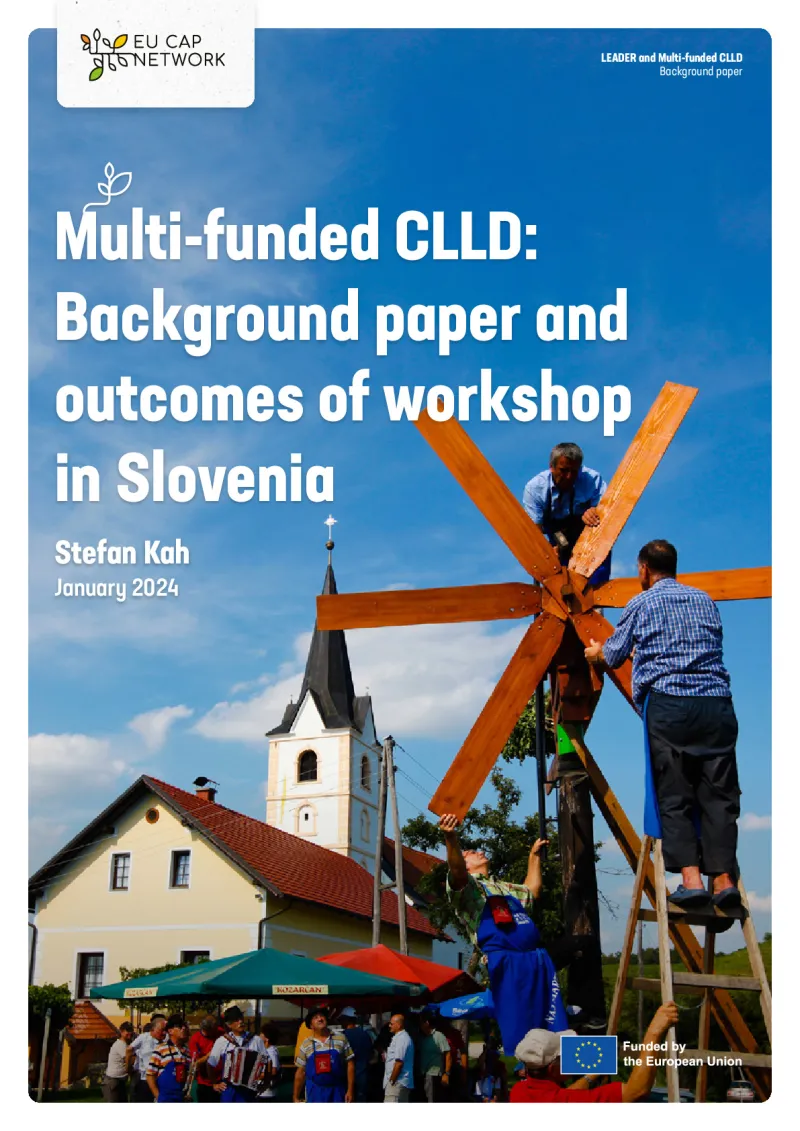Locally-driven approaches shine at LEADER Congress awards
Four good practice prizes announced at the European LEADER Congress show LEADER’s support for locally-led approaches to cultural heritage, farm tourism, youth and rural mobility.

Last December saw the largest gathering of LEADER stakeholders for many years at the Brussels European LEADER Congress. This large-scale meeting of LEADER’s community of practice (people sharing common concerns, problems or interests) brought together hundreds of local action groups (LAGs), as well as EU and national level stakeholders, to consider the future of LEADER in European policies.
The wide-reaching Congress agenda included time for celebrating and recognising good practice projects in a dedicated LEADER awards ceremony. Four winners were announced that offer practical value to our readers interested in LEADER’s potential for supporting heritage, farm food tourism, rural youth and mobility.
Economic development, heritage and nature
Portugal won the top prize for its locally-led approach to networking villages interested in making the best use of their cultural assets. The Villages of Portugal (Aldeias de Portugal) project saw cooperation between 16 LAGs and resulted in new rural development benefits for villagers in each LAG territory. A productive project methodology first identified villages that could act as strategic ‘growth poles’ (where economic development starts and spreads to surrounding areas). This process confirmed the communities which contained the strengths and potential to become cultural tourism hotspots and which could attract the related LEADER funding for bottom-up projects developing cultural tourism tools or resources.
Local traditions and products were enhanced by the 2023 LEADER awards winner, which used Facebook as a key community communication channel. The jury heralded this project’s capacity to “drive sustainable economic development, preserve culture and promote quality of life in rural areas, promoting social inclusion and combating poverty in these territories".
Second prize went to Spain for an environmental project providing LEADER contributions to the European Green Deal. The Green Experience initiative from Camp de Morvedre in the Valencia region used innovative thinking to combine eco-tourism with agri-food production. In this project, LEADER funds helped co-finance citrus farm diversification plans to explore new income possibilities from cycling tourism, especially the use of electric bikes in the countryside.
Slow tourism styles were encouraged by this project through visitor management principles based around helping tourism clients to ‘disconnect from routine’. LEADER support was used to provide high quality on-farm accommodation and to attract a new clientèle of cyclists to the region.
Novel marketing plans offered each visitor an option to plant a farm fruit tree that can be sponsored, with its fruit being shipped to its benefactor. Achievements of this project noted on the LEADER Congress website state that, “today we have a network of more than 200 travel agencies around the world specialised in cycle tourism and that market our packages. Many of these agencies have signed an agreement with us guaranteeing an annual minimum number of tourists for the activity.”
Innovation skills and services
France’s overseas territory of Guiana was the location for a rural mobility project that took third place in the European LEADER awards. The aim of the Auto-École Sociale Nomade activity centred on improving the quality of life for rural residents, by reducing the factors that fuel isolation and associated development obstacles, particularly the lack of a driving licence.
Summing up the simple but successful idea behind this LEADER good practice example, the Congress website states: “Our innovative project ‘goes to’ the student, bringing the learning of the Highway Code and driving to the heart of remote areas. In our specially equipped lorry, fitted with a driving simulator, we offer much more than lessons: we build self-esteem and confidence, the keys to success. Working in partnership with social workers, we identify and address the obstacles to professional integration. The Auto-École Sociale Nomade is more than a driving school: it’s a bridge to autonomy for the people of Matoury and Roura in French Guiana, with the potential to inspire and adapt to other isolated regions across Europe.”
In addition to these three jury prizes, the popular vote (similar to our ARIA competition) from the general public went to the Czech Republic, with its technology-based youth support project. Skills in smart systems and digitalisation were provided to help young people develop knowledge that could help them stay and sustain their communities in the coming years.
Rural depopulation pressures were also tackled by helping the younger generation see and feel that their rural areas could be attractive places in which to live and work. Youth entrepreneurship training in robotics, programming, design, 3D printing and other technologies was delivered using LEADER funds.
Results provided a rural service facility, “where children can not only realise themselves but also increase their professional knowledge and practical skills and thus significantly develop their competencies for the future labour market in the Industry 4.0 era.”


